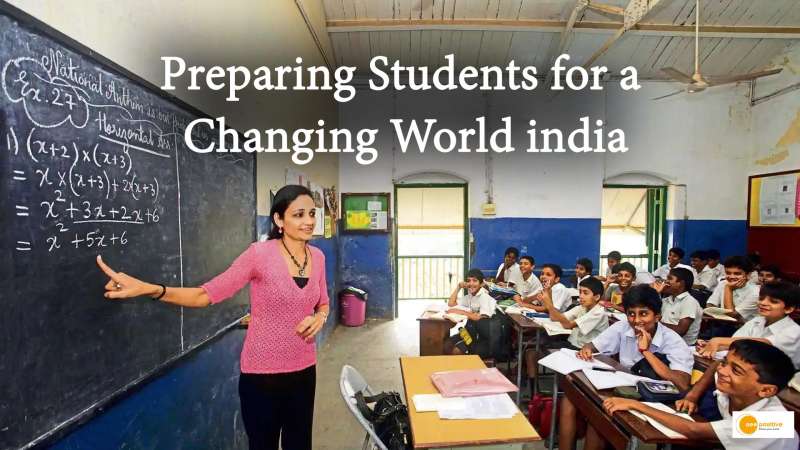

Young people’s ability to adapt to rapid change may play a significant role in determining whether the future holds promise or danger. Many middle-skilled people are now unemployed or working in low-paying occupations due to automation, a phenomenon observed in over 30 industrialized and developing countries. Certain abilities, including flexibility and communication, have always been critical for work and life, but the current situation makes them even more essential for the next generation.
According to a McKinsey Global Institute study covering 70 countries, there would be an estimated 83 million high- and middle-skilled job openings unfilled by 2020 due to employers in both developed and developing nations needing help to locate qualified candidates.
Education is necessary to provide every young person with the necessary abilities for the world we live in now and the changes we anticipate for the future. Academic proficiency in subjects like reading, mathematics, and science is essential but needs to be improved. Young people are required to generate ideas, sympathize with others, and work cooperatively to solve problems. They must also be resilient and adaptable to keep learning and mastering new skills. Some learning scientists contend that these non-academic skills are crucial since they can support improved academic performance in the classroom and enable kids to flourish in a changing environment.
More than just new technology is what innovation in education entails. It’s about finding a novel, straightforward solution to a genuine situation to advance equity and enhance learning.
Education innovation can take many different shapes. Innovative programs, services, methods, products, and collaborations can improve educational outcomes. For example, children in rural places can learn math through personalized games on solar-powered tablets.
The scope of the solution and the difficulty are balanced in innovative education. To guarantee that choices are made by people who their results will most impact, it draws on the ingenuity and experience of groups, like a program in Ghana that empowers local grandmothers and mothers to support early childhood education.
There are already a lot of innovators working in communities and classrooms.
Why Is Educational Innovation Vital?
Education is no different from other industries because innovation is essential to progress.
Given that the young minds that the educational system today shapes will be paving the way for innovation tomorrow, innovation in schooling is particularly important. This investment will be required to maintain our current rate and quality of progress if the fast-evolving needs of the existing workforce are any indication of what lies ahead for future generations.
To keep up, instructors must update the antiquated procedures and methods that govern colleges and institutions nationwide and implement procedures that better equip students to operate in the future.
Many experts suggest ways to enhance the educational system, but only a few have access to the resources and help they need to realize their passions. Trying to make sure that pupils, as well as parents, are included at the table is one of the key elements of educational innovation. Although there is a structure to keep those participants out, how can you create without having your learners sit beside you during the design process? Innovation is nothing more than an experiment without the potential to be sustainable.


